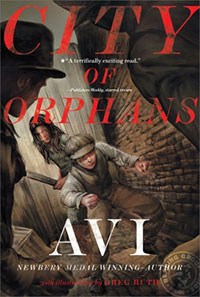
POLONIUS: What do you read, My Lord?
HAMLET: Words, words, words.
It is often claimed that the English language has the largest vocabulary, in part because it has taken in words from other languages.
(Thus SKIPPER, the person in charge of a boat, comes from the Dutch language. CAPTAIN, from old French.)
It has also been suggested that Arabic may have more words, depending on how it is used and constructed.
Regardless, as large as the English language is, English writers don’t just invent stories, they invent words, words that enter the language and are used by everybody without any knowledge of where they come from.
Consider:
Chaucer invented TWITTER. Also, from him, FEMINEITY.
CHORTLE from Lewis Carroll.
BOREDOM, was invented by Charles Dickens. Also, THE CREEPS.
HARD-BOILED, comes from Mark Twain.
BANANA REPUBLIC, was offered by O Henry.
T‑SHIRT, was first set down by F. Scott Fitzgerald.
MOMENT OF TRUTH, as you might almost guess, was first used by Hemingway.
Without doubt the greatest inventor of English words was Shakespeare, who gave us many, many including such (now) basic words such as BUMP, HURRY, CRITICAL.
 Why writers invent such words is a whole other question. Perhaps they didn’t know of an established word that expresses what they wish to say. The word sulk (that first appeared in the early 19th century) took the place, according the Oxford Unabridged Dictionary of the English Language, of a word I never heard of, the sullens. I prefer the late nineteenth century word, pout-mouthed, which I found when researching my book, City of Orphans.
Why writers invent such words is a whole other question. Perhaps they didn’t know of an established word that expresses what they wish to say. The word sulk (that first appeared in the early 19th century) took the place, according the Oxford Unabridged Dictionary of the English Language, of a word I never heard of, the sullens. I prefer the late nineteenth century word, pout-mouthed, which I found when researching my book, City of Orphans.
Recently, for a book I’ve been writing, I wanted to express the exchange between a brother and sister, silently mocking their father’s comments. I wrote:
“From then on whenever Father quoted the remark—he did so often—my sister looked at me and shared a secret eye-smirk. I had to look away.”
“Eye-smirk,” is not a word, but I used it anyway. It expressed (for me) what the moment suggested. Will my publisher’s copy-editor allow the word to go into print? I don’t know. Will it enter the language if it does? Hardly likely. But it was fun to invent and use.
Maybe that’s why writers invent words: It’s fun to do.
3 thoughts on “Inventing Words”
Eye-smirk is PERFECT! And I know exactly what that looks like, and feels like…that’s the secret, the “expression” needs to possess feeling!
Like you, I write for kids. Thus, I have gone a long way to invent idiosyncratic curse words my characters use that would not offend the sensibilities of those (such as me, to be frank) who never use the ones common in our current lexicon.
Eye-smirking right back at you 😉
What are some of your favorite movies?